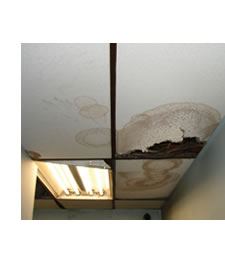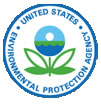

Exposure to indoor contaminants represents one of the most wide-spread exposures affecting public employees. Contaminants generated indoors can be concentrated in indoor air by inadequate or improperly operating ventilation systems that do not provide enough dilution ventilation. Contaminants can also be introduced by construction/ renovation projects within the building or from exterior sources entering a building. Health effects caused poor indoor air quality can range from general malaise, such as fatigue and headache to more serious symptoms such as asthma and infections. Indoor air quality issues represent approximately 60% of the complaints investigated by PEOSH.
RegulationThe New Jersey Indoor Air Quality standard, N.J.A.C. 12:100-13 (2007), sets standards for indoor air quality in existing buildings occupied by public employees during their regular working hours. The Indoor Air Quality Standard is one of the only state indoor air quality standards in the U.S.
Resources to Help with ComplianceThe PEOSH has developed the following guidance resources to assist employers in complying with the requirements of the Indoor Air Quality Standard. Guidance documents can be downloaded individually or as part of the Public Employer's Guide and Model Written Program.
| Name of Publication | File | Description |
| PEOSH IAQ Standard | [pdf 28k] | The PEOSH Indoor Air Quality standard (N.J.A.C. 12:100-13) (2007). The standard applies to matters relating to indoor air quality in existing buildings occupied by public employees during their regular working hours. |
| Public Employer's Guide and Model Written Program | [pdf 149k] | The IAQ Public Employer's Guide and Model Written Program is a comprehensive guidance document designed to assist public employers in complying with the requirements of the PEOSH IAQ standard (2007). The Model Written Program, sample checklists, and forms can be downloaded below in an editable format. |
| Model Written IAQ Program | [doc 53k] [pdf 31k] | The Model Written IAQ Program is provided to illustrate how to develop a written program. The format and content of the model program must be modified to reflect the specific ventilation system(s) and administrative policies at each building. |
| Form Title | File | Description |
| IAQ Inspection Checklist | [pdf 25k] [doc 149k] | The IAQ Inspection Checklist is provided to assist employers in understanding the requirements of the IAQ standard. Employers are encouraged to utilize this checklist to conduct a self-audit of their IAQ Compliance Program. This checklist is utilized by PEOSH compliance officers during IAQ inspections. |
| Sample Preventive Maintenance Log | [pdf 10k] [doc 36k] | The Sample Preventive Maintenance Log is a sample of the basic format required under Section 13.6 of the IAQ standard. Copies of the completed log are required to be maintained for a period of three (3) years and must be available to PEOSH inspectors upon request. |
| Sample Renovation/ Construction Project IAQ Compliance Checklist | [pdf 17k] [doc 40k] | The Sample Renovation /Construction Project IAQ Compliance Checklist is provided to assist employers in ensuring compliance with the IAQ standard during all phases of a renovation/construction project. Employers are encouraged to begin completing this checklist at the planning phase of a renovation/construction project. Completing this checklist will also serve as documentation of compliance with some requirements of the standard. |

NJ Department of Health
Environmental and Occupational Health Assessment Program
The mission of the Program is to protect the health of the public by reducing residents and workers’ exposure to chemical, physical, and biological hazards including asbestos-containing materials, bloodborne pathogens, lead-based paint hazards, and many others. Additionally, the Program:
Office of Lease Compliance
State agency responsible for managing contracts on state leased buildings, liaison with property owner, coordinates building maintenance issues.

The EPA has major indoor air responsibility for public and commercial buildings and offer many programs and publications:

ASHRAE advances the arts and sciences of heating, ventilation, air conditioning and refrigeration and establishes consensus standards for many aspects of the HVAC industry.
ASHRAE Standards related to the NJ IAQ Standard:
NJDOH Healthy School Facility Environments
A gateway to resources to help address environmental health issues in schools such as indoor air quality, mold contamination, hazardous substances, and construction dust and noise. Features links to the resources of six New Jersey state agencies, federal agencies, and many advocacy groups.